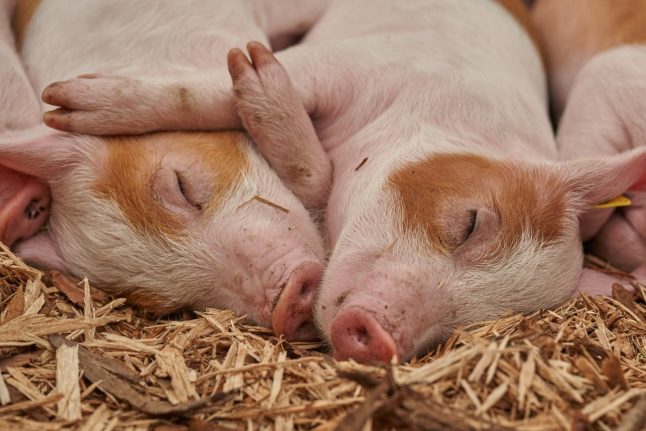And the award for best canton for foreigners goes to … Neuchâtel. It’s got the lake, it’s close to several of the larger job markets and it’s relatively cheap, but most of all, Neuchâtel is welcoming to its foreign population.
Graubünden, on the other side of the country, recently announced that it would accept non-Swiss applicants with a C Permit to its police force. Though the news caused a stir, it was not a first. Neuchâtel police have been open to foreign recruits since 2007. Basel-City led the way in 1996.
Allowing foreign citizens to become police officers can be seen as a demonstration of trust and successful integration, though there are more practical considerations, such as a shortage of candidates, as Graubünden Police admitted.
In any case, a change like this makes life for a quarter of the population easier and more welcoming. Other important areas where being a foreigner matters include voting rights and naturalisation.
Voting rights
Neuchâtel has an unmatched record on the voting rights it grants to foreigners, a minority position in Switzerland. Since 2001, the canton on the French border has granted cantonal voting rights to its foreign residents who have lived there for five years.
Jura is the only other canton to offer the same opportunity (since 1979), but based on 10 years residency in Switzerland. Only these two cantons out of 26 have taken this step and there has been no movement on this right since 2001.
READ ALSO: How moving to another Swiss canton can complicate your life
But cantonal is just one of three voting levels. Federal is out, obviously. Only Swiss citizens can vote in national referendums or in federal elections. So that leaves the municipality level.
All municipalities in four cantons – Fribourg, Vaud, Neuchâtel and Jura – allow long-term foreign residents to vote and stand for election. Geneva goes half way by allowing foreigners to vote but not run for election. Neuchâtel introduced this right in 1849, Jura in 1979.
Three more cantons – Basel-Stadt, Graubünden and Appenzell Ausserrhoden – have started the ball rolling by authorising their communes to introduce the right to vote and be elected. But the implementation is patchy with not all municipalities on board yet. For most of Switzerland, foreigners still have zero voting rights, a big gap in Swiss democracy.
Naturalisation lottery
There are 26 paths to Swiss citizenship – 2,136 if you count municipalities – but, given the residency rules and the realities of putting down roots, it’s not exactly a free choice which path you take. As a general rule, the large population centres with the highest immigrant populations have the smoothest systems in place.
A canton’s naturalisation rate shows what share of its permanently resident foreign population are naturalised annually. It is a good indicator of openness to new citizens. The national average in 2020 was 1.6 percent overall and 3 percent for foreign citizens born in Switzerland. Neuchâtel is top of the table on the overall rate at 2.3 percent, followed by Zurich.
EXPLAINED: The Swiss cantons with the highest (and lowest) average incomes
Apart from the federal conditions for naturalisation, the cantons have some freedom to set their own additional terms.
These include time spent living in the canton before you can apply for citizenship, and barriers for those who received social welfare payments. Many cantons demand three years free of social welfare (or a full repayment of benefits) before applying, but Aargau has gone for 10 years.
The language and local knowledge requirements vary from canton to canton, as do the costs of the procedure, which can top 3,000 francs in total. Neuchâtel offers a course on living in Switzerland. Applicants who complete this course are exempt from the usual interview.
The minimum time spent living in the canton before applying for naturalisation varies from two years to five years. In Zurich, Basel-Stadt, Geneva, Bern and Vaud, it’s two years.
Naturalisation remains a political football and the conditions may even change before you reach the end of the procedure, which usually takes from one-and-a-half to two years.
READ ALSO: Why the Swiss canton you live in matters more than you think
Money matters
Not all foreigners care about voting rights and naturalisation. Some don’t expect to stay in Switzerland long enough and others are more interested in the good lifestyle the country has to offer. Then there are those focused on the bottom line, like the recent influx of rich Norwegians fleeing a tiny tax increase in their home country.
The big cities have the advantage of a broader cultural life and more services available in English. They also have the best jobs markets for international folk whose work language is English.
Zurich has a welcome page on its website for English speakers moving to the canton, full of useful information. Geneva, with its 41 percent foreign population, does the same, as does Basel. Canton Bern has a welcome site for “internationals”, while the city of Bern offers its own guide in English.
But those focused on low taxes will be most at home in canton Zug. In a recent survey of tax rates in municipalities carried out by the Tages-Anzeiger newspaper, all of the top 10 cheapest towns for taxes were in Zug.
EXPLAINED: Why does the canton of Zug have the lowest tax rates in Switzerland?

For comparison, the newspaper looked at the combined federal, cantonal and local tax rates for a single person on an annual salary of 100,000 francs. In Zug, it was around 6 percent and guess what canton was at the other end of the scale? Good old Neuchâtel, where the combined rate worked out at 20 percent.
If you take housing costs into account, Zug is the most expensive canton and Neuchâtel the second cheapest, so it all has to be weighed up.
The variety of lifestyles and benefits offered by Swiss cantons, including climate, means that there’s something for everyone in this small country. As long as you go in with your eyes open!



 Please whitelist us to continue reading.
Please whitelist us to continue reading.
Member comments